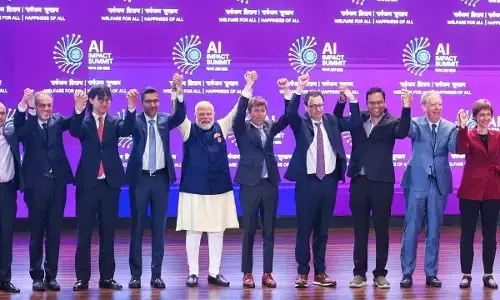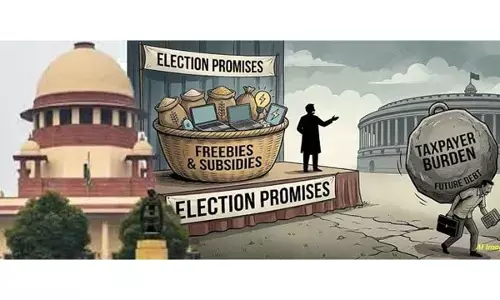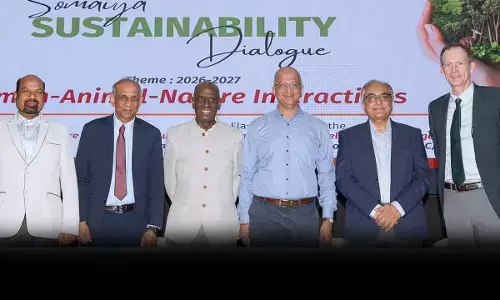Fairness, objectivity in journalism

Fairness, objectivity in journalism . The media is the life blood of our democratic system, as it serves many higher purposes. During the freedom struggle of our country, it played a great role in fostering the feeling of nationalism among our people. Many papers even defied the draconian laws of censorship imposed by the colonial government.
 We are now to a great extent witnessing irresponsibility in news coverage and comments… on a scale never witnessed before. I am saying this in utmost sorrow as someone, who has spent about half a century of my life in humble pursuit of the profession. The new state is on the verge of taking great strides in development and this development has to be properly reported by the media. But these reports, if they have to be effective, require considerable investigation and research skills on the part of the journalists, apart from firm grasp of trends in economic thought, planning and development
We are now to a great extent witnessing irresponsibility in news coverage and comments… on a scale never witnessed before. I am saying this in utmost sorrow as someone, who has spent about half a century of my life in humble pursuit of the profession. The new state is on the verge of taking great strides in development and this development has to be properly reported by the media. But these reports, if they have to be effective, require considerable investigation and research skills on the part of the journalists, apart from firm grasp of trends in economic thought, planning and development
The media is the life blood of our democratic system, as it serves many higher purposes. During the freedom struggle of our country, it played a great role in fostering the feeling of nationalism among our people. Many papers even defied the draconian laws of censorship imposed by the colonial government.
Even after independence, the free press struck roots in India, largely because it had as its first Prime Minister, a man like Jawaharlal Nehru, who was very much steeped in the democratic tradition. Many working in the media those days treated it as a public trust, justifying its characterisation as the fourth estate. Its prime asset then was credibility; it maintained professional standards of fairness, balance, accuracy and public interest.
A courageous and independent press took roots in the country despite contemporary constraints like ownership. The press owes it to public then and now to ferret out the truth, to impart accurate information and offer informed comments. Even in times of euphoria, the press owes its duty to be careful about accepting as true, whatever version the regime of the day imparts. In the journalistic profession it is the personality of the journalist that matters, his integrity, clinical detachment and his commitment to accuracy.
“ Since then things have changed greatly especially since the late 1990s.” Now with some exceptions, it is no more responsible journalism. lt is becoming partisan and a transmission belt for official and oppositional views depending on its support base. It is also becoming sensationalistic just to pump readership and revenue. Some press corps are also forging cosy alliances with the power elite, while some others are becoming excessively negative and adversarial of those in power.
At times one gets an impression that the fourth estate is becoming the fourth arm of the government of the day. l think that we in the profession of journalism should always remember that we are only the observers of the scene and if we become participants, the result will be pamphleteering and not journalism. Because of all this, the very credibility of the press is becoming a large question mark in the public mind.
At the time of independence of India, Telangana as a part of the Hyderabad state was still being ruled by the Nizam and the press was then dominated by Urdu media. In Secunderabad, which was under British control, there were some English and Telugu newspapers. The notable among English newspapers were Deccan Chronicle and Hyderabad Bulletin. Among Telugu newspapers, there was Mizan edited by famous writer Adavi Bapi Raju.
Another Telugu newspaper, Golkonda Patrika, was published from Hyderabad and edited by the great Suravaram Pratap Reddy. Even after the liberation of Hyderabad State, the press by and large was only at a nascent stage in Telangana. There were very few journalists from Telangana region. After the formation of Andhra Pradesh also, the strength of journalists from Telangana did not increase much.
By the beginning of the present century, more and more journalists from Telangana started working in various newspapers and many of them were well-informed and rose to the highest positions in the media. But they also could not maintain the independence of the papers; they were associated, with, because of the stranglehold of their proprietors on the media. Many newspersons developed dinosaurous riches and became insensitive to reality. There was even talk of some journalists becoming purchasable commodities.
Because of all this, we are now to a great extent witnessing irresponsibility in news coverage and comments, particularly pertaining to Telangana region on a scale never witnessed before. I am saying this in utmost sorrow as someone, who has spent about half a century of my life in humble pursuit of the profession.
My one sincere request to the press in the year old state of Telangana is to outlive the earlier sorry phase and should strive to raise the flag of professionalism and intellectual independence. There should be honest and fair reporting.
The new state is on the verge of taking great strides in development and this development has to be properly reported by the media. But these reports if they have to be effective require considerable investigation and research skills on the part of the journalists, apart from firm grasp of trends in economic thought, planning and development.
By Ch Rajeswara Rao









